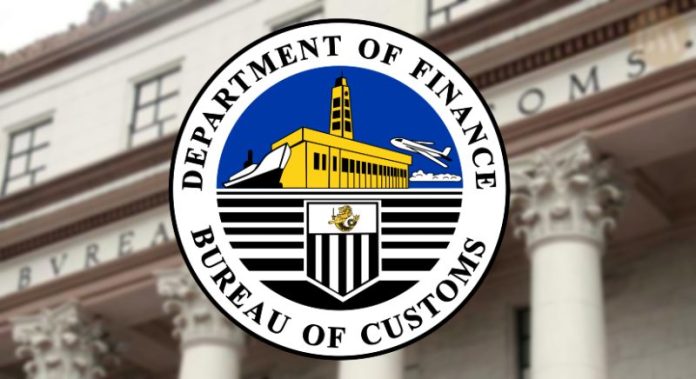-
The Bureau of Customs hopes to award this month the contract that will jump start the World Bank-funded Philippine Customs Modernization Project
-
BOC Assistant Commissioner Vincent Philip Maronilla says procurement of the Project Supervision and Quality Assurance Services is “essentially done”
-
Maronilla earlier said BOC was hoping to award the contract by June but that a July date was still within the WB schedule
-
The PSQA is a critical first procurement that will jumpstart the BOC modernization project
The supervision contract for the Philippine Customs Modernization Project (PCMP) may be awarded this month.
Bureau of Customs Assistant Commissioner Vincent Philip Maronilla in a phone interview with PortCalls said procurement of the Project Supervision and Quality Assurance Services (PSQA) is “essentially done” and that they are just waiting for the counterpart process with WB to conclude before awarding the contract.
The PSQA is a critical first procurement that will jumpstart implementation of the PCMP.
Maronilla previously said BOC was hoping to award the contract by June, but that a July awarding was still within the WB schedule.
The Commission on Audit (COA), in its recently released 2022 annual audit report for BOC, recommended expediting the procurement of the PSQA, noting it has been delayed for more than 300 days, hindering the implementation of major components of the PCMP.
The PSQA contract had earlier been expected to be awarded in December 2021 and the PSQA consultant to be on board by January 2022, according to a November 2021 implementation status report by WB.
COA said the delay was due to legal issues on the merger and acquisition of the prospective contractor as well as possible conflict from a pending case at the Manila RTC declaring as illegal all similar projects that seek to replace BOC’s current electronic system. This includes PCMP, particularly its Customs Processing System (CPS) component.
In 2021, contract negotiations with the bidder with the most advantageous offer were put on hold when that bidder was acquired by another company. The COA report said the issue on the merger was resolved in September 2022.
Further, BOC sent letters last year to the Office of the Solicitor General requesting guidance on how to move forward given the Manila RTC case.
Maronilla said the Manila RTC case will not affect awarding of the PSQA contract as it only covers project supervision.
The PSQA assignment includes two broad task clusters. The first is project supervision and quality assurance services associated with the modernization of information and communications technology (ICT).
This includes procurement and implementation of the CPS; enterprise resources planning system as part of the organization development component; and Remote Image Analysis Center (RIAAC) systems and related infrastructure.
The second cluster focuses on organizational development, change management, capacity development, support to improve integrity in the workplace, gender inclusion and development, and other human resources interventions to ensure that new ICT capabilities effectively translate into business practices that conform with international standards and accepted good practice principles, and deliver maximum operational impact.
Once the PSQA contract is awarded, the BOC Project Management Unit (PMU) will focus on completing the bid documents for the procurement of the administrative back-office enterprise resource planning system and RIAC Center feasibility study, whose implementation can be accelerated, according to the WB latest implementation status and results report in February 2023.
PCMP is expected to improve the country’s customs administration through streamlining, automation, and development of a world-class CPS.
The WB’s Executive Board approved the loan for the project in October 2020. The project was first introduced by the Washington-based lender in 2017 and was approved by the National Economic and Development Authority Investment Coordination Committee-Cabinet Committee on March 6, 2020.
It was officially launched in March 2021.
The project has a total cost of US$104.38 million, of which $88.28 million will be funded through WB’s official development assistance, and the balance shouldered by the borrower.
BOC, supervised by the Department of Finance, will be the implementing agency responsible for project execution and for ensuring project development objectives are met. A project steering committee, chaired by the Finance secretary and composed of other agencies critical to the operations of BOC, was also created with the main task to provide policy guidelines on the implementation of the PCMP.
Traders, exporters, importers, port operators, shipping companies, and transport providers – many of them small and medium enterprises employing many workers – are expected to benefit directly through reduced transaction costs and enhanced predictability and transparency of the clearance process.
The project’s technical design forms an interlocking set of reforms to address the issues and challenges BOC faces, with focus on automation to improve the bureau’s processes and integrated systems.
The CPS will also improve adherence to international standards and conventions on customs processing, provide audit trail for transactions, and allow for greater transparency and less opportunity for corruption.
PCMP is also expected to create a simplified, faster, and more user-friendly experience for compliant traders, with the CPS supporting enhanced intelligence in targeting and discovering high-risk cargo as well as compliant traders. This is expected to expand the country’s tax and duty base and “lead to an in increase in government revenue without implementing additional taxes.”
WB country director Ndiamé Diop earlier said that similar customs reforms projects by WB in other countries have led to an actual increase in revenue collection of between 11% and 300%. – Roumina Pablo





